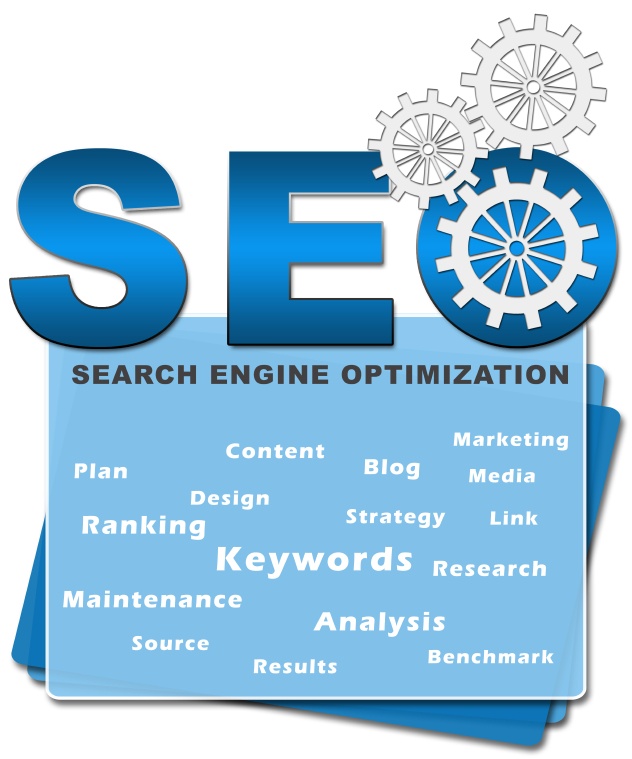Have you ever gotten an email which says something like, “We are the best at SEO…first page guaranteed”? Sounds pretty good, doesn’t it? But I have learned that it is perhaps not as good as it appears.
Why do I say that?
Let’s start with the buyer’s journey and why firms that only deal in SEO ranking can only get you part of the way to achieving your goals. Getting to the first page of Google is not all that inbound marketing is about! Helping a buyer through their decision process so they can make the right choice among many options is really a bigger objective — and one that needs you to think about more than just SEO. Search marketing is more than just the right content on the website.
SEO is critically important — agree, but…
While we at Simon Associates Management Consultants (SAMC) recognize that optimization ranking is critical, and having great content on the website is a perfect foundation. However, there are a lot of other things to think about to create the relevance that matters for the buyers you seek.
Consider these:
- What is your Internet Marketing Strategy? You should have three important elements to that strategy:
- Who is your target audience — that buyer? What is their persona?
- What are the keywords that they are using to ask their questions? Broad and long-tail ones.
- How does your content help answer those questions for them?
- What is your Keyword Strategy? Then, does the keyword ranking tie into both your strategy and your prospects’ personas? If it does, great. But if it doesn’t, or if you are just attracting people to your website who could affect keyword ranking but not impact your business, then what? And by the way, keyword rankings are great but what about search frequency? You can own the ranking for the keywords and yes they could be part of your strategy of attracting your target audience, but that’s only part of it. However, if there is no monthly search volume, you can indeed have a top ten ranking but you aren’t going to draw much traffic to your website.
- Isn’t there more to it than these rankings? The answer is yes. We like to think that the initial leap forward with keywords is to attract people. Said another way, this is just filling the top of the funnel. But once you get potential users into the top of the funnel, you need to do more. You need some useful, meaningful offerings to move them through the buyer’s journey—something more than search engine optimization.
- Who is going to produce the offerings that are required to move potential customers along their buyer’s journey? The objective must be to turn a lead into a customer. As people go deeper into their buyer’s journey, you need to provide them with more: enticements, enhancements, things to keep them engaged with you. Who develops this and how? And how do you develop the Calls-to-Action (CTA) that are necessary to deliver appropriate content?
- How does it stay fresh and relevant. Finally, when you have adequately optimized your website, how do you make sure your content is frequently updated because rankings depend on both content, relevance and frequency. Shouldn’t blogs be part of the process? Everyone is selling first page rankings but who is selling blogs as an essential part of the equation? Far fewer! Blogs are just as important, if not more so, because they provide your site with new and fresh content. It is the equivalent of adding pages to your website. Who is writing them and who is tagging them, and how well are they tied to different stages in that buyer’s journey?
There is more to success than just first page on Google
So far, I have discussed keyword ranking, developing CTA’s and moving people along the buyer’s journey. Isn’t there more to build first-page status on Google and the right customers to follow?
I watched a video the other day on “social selling.” There was a discussion about the use of social media to make your offering “visual and creditable.” We subscribe to that statement and we believe that the use of social media or social marketing is a critical part of any campaign. Social media will drive people to your site where you have an opportunity to get them to the decision stage—a crucial step in making them your customers.
To test this line of thinking regarding the power of social media, we ran a study with one of our clients. During the initial three month period following launch, we focused on fine tuning their website and blogging extensively, spending a minimal amount of time on social media. Yes, we created a Facebook page but only posted blogs there.
During the next three month period, we engaged in social media postings with greater frequency, using the social media vehicles Twitter and LinkedIn. The net result? The number of visits to the site doubled and the quantity and quality of comments significantly impacted the business.
The most valuable part of the process was the data and the dashboard that allowed us to test, watch, revise and test again.
So you see, search optimization, while important, becomes only one part of the equation. To exclusively focus on this activity to solve all of your problems might only meet with unfulfilled expectations.
Where are we? What are the lessons that should be key to your business growth strategy?
- Rankigs are great but it is not enough to fulfill a comprehensive, integrated Inbound Marketing campaign and grow your business.
- Expand your strategic plan to include the use of search, content development and distribution and social marketing.
- Subscribe to an Inbound Marketing platform which provides, among other things, a dashboard so you can quickly obtain and measure results. Also, have an engine that allows you to publish easily to all your designated social media outlets. At SAMC, we use HubSpot, but anything is better than nothing.
Could your business use a boost?
To learn more, download our e-Book on “17 SEO Myths”. Or if you would like to discuss your growth strategy using Inbound Marketing, contact us.
And y Simon y SimonSAMC-Inbound Simon Associates Management Consultants
|



